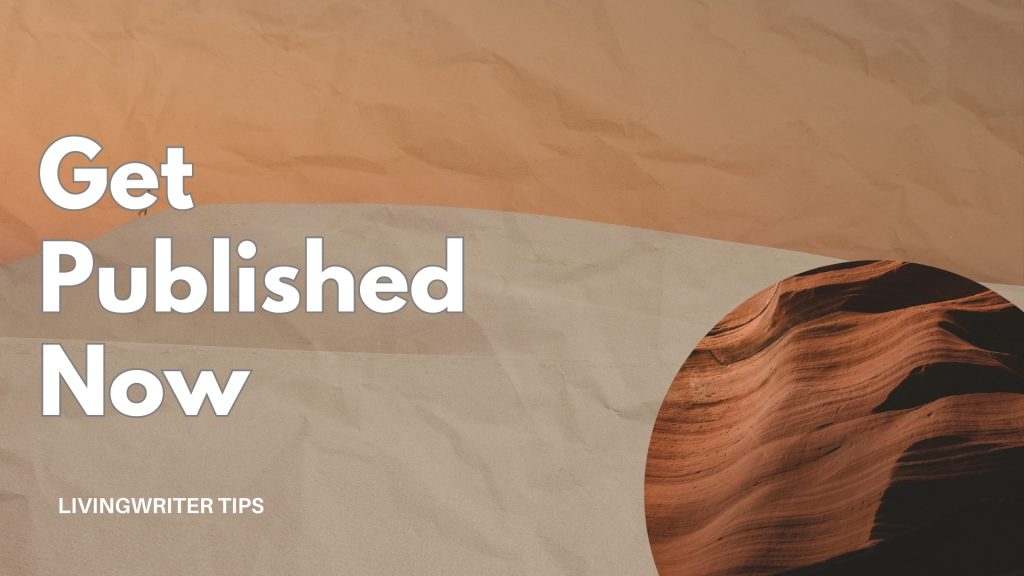How To Get A Book Published: Guide to Agents, Editors & More

The world of publishing can seem shrouded in mystery, especially for first-time authors. Literary agents, publishers, editors, etc, are all different and all play different roles on your path to success as an author. Today’s article aims to shed light on the roles of agents and publishers in writing and the various paths to getting your work out there.
Once we understand what they are and what they do, we can discuss when and if you need them. We’ll also cover how to get a literary agent, publisher, or editor if you want one and some alternatives to traditional methods such as self-publishing and freelance editing.
Table of Contents
What Is A Literary Agent?
Literary agents are the champions behind the scenes for many authors. They wear multiple hats, but in simple terms, their job is to help your writing career and be your advocate in the complex world of publishing. Think of them as experienced middlemen (or women) between you and publishers who help your book get picked up.
Because they only get paid if you get a deal, agents are highly motivated to find the best prospects and the best possible home for your work and negotiate the most favorable contract terms. This commission structure creates a win-win situation.

Agents are incentivized to work hard on your behalf to secure the best deal possible, as their income increases with yours. This aligns with your goals and ensures your agent is actively working to get your book published.
Here’s a deeper dive into what literary agents can do for you:
Manuscript Evaluation And Polishing
Agents assess your manuscript to determine its market potential and fit within their agency’s specialties. A strong agent will provide honest feedback on your strengths and weaknesses, helping you refine your work before it reaches publishers. Some agents even offer editorial suggestions or can recommend freelance editors for an extra layer of polish.
Finding You The Right Publisher
Agents have a deep understanding of the ever-changing publishing landscape. For example, they know which publishers are actively acquiring books in your genre and what kind of stories they’re seeking. This knowledge allows them to strategically target submissions to the right editors who are most likely to be interested in your work.
Once your manuscript sparks interest, your agent takes the lead in negotiating the book deal. They handle many of the nitty-gritty details. This includes working to get you a favorable contract that covers things like advance payments, royalties, subsidiary rights (film, translation), and creative control.
Outreach And Ongoing Support
Even after the deal is signed, many agents offer ongoing support. They may provide advice on promotion or connect you with publicists to help market your book. Additionally, they can often connect you with other authors or have opportunities to participate in book signings, author panels, or literary events, further building your author platform.
In general, they have access to opprutunites and contacts it would be hard to find yourself. This could include things like reaching out to foreign publishers for translations and negotiating film or television adaptation rights.
How Does A Writer Get An Agent?
Landing a literary agent can feel like finding a hidden treasure – it unlocks doors to the traditional publishing world and propels your writing career forward. But how do you convince an agent your work’s worth representing?

The key lies in a combination of a polished manuscript, a strategic approach, and a touch of perseverance. Here, we’ll break down the steps involved in securing literary representation, from crafting a compelling query to navigating the submission process.
Five Things Agents Want From A Writer
1. Talent
This one may seem obvious but it still needs to be mentioned. First, because agents do want to work with talented writers, of course. Secondly, because I want to clarify something. Talent means talent and you can have it even if you’ve never been published before and don’t have any awards or credentials.
You May Also Like: How To Get Your Screenplay Accepted – Tips & Tricks
If you have been published, won awards or contests, or otherwise have credentials, feel free to mention them. But it’s important to understand that you don’t have to have any of these other things. In fact, it’s an agent’s job to find untapped talent. So, don’t worry if you don’t have a flashy resume.
2. A Long Term Relationship
When you’re talking to a publisher, they’re going to be considering you for the long haul. This is important because, in addition to whatever samples you submit (if they like them), they’ll also inquire as to what other ideas you may have for the future and the direction you want to take your career.
For example, if the story you submitted was a horror novel, but you primarily write romance novels, that’s something they would want to consider. It’s important to mention that you should feel free to speak with potential agents openly, honestly, and even casually.
Assuming that your long-term vision aligns with what the agent offers, they will seek a long-term relationship with you rather than a one-book deal.
3. A Marketable Story
As mentioned above, agents work on commissions. This means when they find a publisher to buy your book, they get a cut of the deal. So, they’ll be looking for a book that has some marketability and potential to sell.
My number one piece of advice here is to not dwell on this too much as the writer. Your job is to write the best version of the story you need to tell. So, don’t overthink making the book sellable. That’s the agents/editors job and they will have their fingers on the pulse of what’s sellable better than you.
That said, I mention it because needing something sellable is the reality of the situation. But instead of trying to predict what will be sellable, focus on standing out within an established genre or niche. For example, if you can tell your agent you’re writing a science fiction story, they’ll immediately know which publishing houses to consider pitching too.
On the other hand, you want to stand out within your genre. If your sy-fy novel is just like every other one, the publisher won’t have much incentive to buy yours. If you can do something interesting though, and still be within an established genre, you’ll be in phenomenal shape in terms of marketability.
4. Enthusiasm
Agents want to work with writers who are enthusiastic, driven, and willing to put in the work needed to be successful. One of the best ways to show enthusiasm is to write personalized query letters to each agent. Start by addressing the agent personally, expressing why you’d like to work with them and why you think your work is a good fit for them.
This shows an eagerness to work with them specifically. It also shows your ability and willingness to research who they are and what stories they work with, and it showcases your willingness to put in the extra effort to be noticed. Agents and publishers will appreciate a good attitude and dedication to hard work and quality.
5. Trust
Trust is a big thing with your agent. It’s their job to, bargain for you, make deals for you and advise you on your career. You’ve got to trust that they’ve got your best interest at heart because, most of the time, they do. Assuming you’re working with a reputable agent, you don’t have to worry about them undercutting you in deals or running off with your novel.
Again, considering they get paid when you get paid, your success is directly linked to theirs. So, you can pretty safely assume that your agent isn’t going out of their way to sabotage you or your work in some way.
Another area where trust comes up is in big decisions. There are a lot of possibly major decisions that come up when publishing a book and again, you need a level of trust. For example, if your agent suggests some changes to you, safe to assume it’s for a good reason.
Of course, you should feel free to discuss these changes and offer your opinion as the author. But it’s equally important to consider that they have expertise in the field and knowledge of what particular publishers want to see. They want you to succeed, and any feedback you get will be coming from a place of help, not something sinister like “destroying your vision.”
Things To Avoid
Here are some things that you should avoid doing when reaching out to agents. If you’re brand new to seeking an agent, not doing these things will put you off to a great start. And if you have been sending out queries and getting rejection letters you can get on the right track.
- Overly Generic Query Letters: As mentioned above, you should personalize your submission letters. A good way to do this is to explain why you want to work with them. Be sure to do this upfront and not at the end. Without some personalization, your letter will feel robotic.
- Being Presumptuous: Don’t lead with things like, “I’m a perfect fit for you and your agency.” While this can feel like confidence, you don’t want to assume things. Just present your work and let the agent decide that. Similarly, overstatements like, “I’m going to be the best-selling author.” fall into this category too. They are the expert, and you don’t need to be the next Stephen King to get accepted.
- Pitching A Book You’ve Self-Published: The query needs to be for a book you haven’t self-published. The agent needs original, unpublished content. If you’ve self-published other books, feel free to mention that. It’s also worth noting that, if accepted, they’ll expect to do future books with them vs self-publishing.
- Unprofessional Submissions: Your grammar, writing, spelling are, of course, importnat. Beyond that, keep it simple. No special fonts, images or pictures should be included. Also aviod attachments unless they are requested. Lastly, your address isn’t needed. Spot-check these things and send it to yourself with a new email provider to check for bugs.
- Expecting A Certain Size Deal: There is no telling what any given book deal will look like and asking for certain things up front is off-putting to agents and you could be disappointed.
- Being Overty Sexual or Violent: While strong sexual content or violence within your book can be ok, it can be a turn-off with opening pages. It’s best to present quality content that doesn’t rely on too much shock factor while submitting.
- Incorrect Book Length: Book length matters. The standard for a rovel is 60k to 90k. Under or over by a tad is ok. However, Novela length (17k to 40) or 100k+ may be harder to sell and agents may not want to deal with expanding it or condensing it down. If you’re book is way off try using an editor to get it where it needs to be before submitting.
How To Write Query Letter
The “do’s and don’ts” above should have you well on your way to crafting a query letter that gives you the best possible chance of getting signed on. However, there are still many logistical things that go into writing a query letter. For example, what info do you need to include? How should that info be presented and in what order? How long should it be?
I could give you general tips here, but I highly recommend you check out this video by Alyssa Matesic. In it, she goes over the process step by step and paragraph by paragraph in great detail.
What Do Publishers Do?
Publishers are the bridge between your written work and the world of readers. They take your manuscript and transform it into a finished, polished book, ready to be distributed and enjoyed by readers.
It’s important to understand that publishers are businesses. While they are passionate about bringing great stories to life, they also want to make a profit. This means they’ll invest in projects they believe have strong commercial potential and will resonate with readers.
Here’s a closer look at the key functions publishers perform.
Story Acquisition
Acquisition editors wade through a massive amount of submissions, both solicited ones from agents and unsolicited ones from unknown authors. They have a keen eye for finding promising manuscripts that align with the publisher’s editorial vision and target audience.
Story Development
Once your manuscript is selected, editors work closely with you to refine your work. This may involve developmental editing (strengthening the story’s core, plot, and characters), copy editing (polishing grammar, punctuation, and style), and fact-checking (ensuring accuracy, especially for non-fiction).
You May Also Like: Write Better Characters And Plots – 5 Tips
Book Design And Creation
With the manuscript finalized, the publisher takes care of the technical aspects of book creation. This includes design and layout, cover art creation, formatting for print and ebooks, and pre-press activities to ensure a high-quality final product.
Marketing And Distribution
Publishers leverage their marketing expertise and established distribution channels to get your book into bookstores, online retailers, libraries, etc. They may also organize book tours, author events, and social media campaigns to generate buzz and excitement around your work.
How To Self-Publish A Book

For many authors, the dream is to see their work published and shared with the world. Traditionally, this has meant securing a publishing deal with a literary agent and publisher, as we discussed above. However, the rise of self-publishing platforms has opened up a new avenue for authors to bypass the traditional route and bring their stories directly to readers.
Self-publishing offers a level of control and creative freedom that traditional publishing may not. You get to decide on the cover design, set your own price, and choose your marketing strategy. Royalties are typically higher compared to traditional publishing deals, and you’ll see your work reach readers much faster.
However, self-publishing also comes with its own set of challenges. The responsibility for editing, formatting, cover design, and marketing falls entirely on you. This can be a daunting task, especially for first-time authors. Additionally, self-published books may face initial skepticism from readers and reviewers accustomed to traditionally published works.
You May Also Like: Most Profitable Amazon KDP Niches – Top 10
Here are some of the best ways to self-publish your book:
1. Choose Your Platform:
- Self-publishing platforms: These platforms offer a one-stop shop for formatting, distribution, and marketing tools. Popular options include Kindle Direct Publishing (KDP) from Amazon, Apple Books for Authors, IngramSpark (for broader distribution), and Draft2Digital (for various retailers).
- Self-publishing service companies: These companies provide a range of services, from editing and formatting to cover design and marketing. This can be a good option if you need more hand-holding throughout the process.
- Hybrid publishers: These publishers offer some of the benefits of traditional publishing, such as editing and marketing support, but you retain more control over your work and typically pay a fee for their services.
2. Prepare Your Manuscript:
- Editing and Proofreading: Professional editing is crucial for ensuring your book is polished and error-free.Consider hiring a freelance editor or using an editing service offered by your chosen platform. Proofread meticulously after edits are incorporated.
- Formatting: Each platform has specific formatting requirements. Ensure your manuscript follows these guidelines for a professional look and easy reader experience. Some platforms offer formatting tools or services.
3. Design a Compelling Cover:
- Cover Design is Key: A well-designed cover is essential for grabbing readers’ attention. You can hire a freelance cover designer, use a cover design service, or utilize design tools offered by some platforms (be mindful of limitations). If you write on LivingWriter, you can use our built-in book cover design features.
4. Set Your Price and Distribution:
- Pricing Strategy: Research the pricing of similar books in your genre to determine a competitive price point.Consider offering different formats (ebook, paperback, hardcover) at varying price points.
- Distribution Channels: Choose platforms where you want your book to be available. KDP allows for global distribution, while IngramSpark helps reach libraries and independent bookstores.
5. Marketing and Promotion:
- Create a Marketing Plan: Develop a strategy to reach your target audience. This might involve building an author website, utilizing social media platforms, running targeted ads, or participating in online communities related to your genre.
- Engage with Readers: Connect with potential readers through book reviews, author interviews, online events, or reader giveaways.
It’s important to remember that if you’re having trouble getting a book picked up you may not have success with self-publishing either. Agents aren’t perfect but if they’re routinely turning you down, there is probably a reason. So, keep that in mind and try and be self-aware of issues with your work.
Frequently Asked Questions

This FAQ section addresses some common questions aspiring authors have about agents, publishers, and editors:
Q: What is the difference between an editor and an agent?
A: Editors focus on improving your manuscript at the structural, stylistic, and grammatical level. There are a few different types of editors too. For example, a developmental editors helps strengthen your story’s core, plot, character development, and overall structure.
Copy editors work to polish your language, ensuring proper grammar, punctuation, and stylistic consistency. Finally, there are fact checkers help verify the accuracy of information, especially for non-fiction works.
Literary Agents, on the other hand, evaluate your work and assess its market potential and fit within their agency’s specialties. Then they use industry connections to strategically submit your manuscript to the right publishing houses.
From there, they’ll handle the negotiation for book deals, including aspects like advance payments, royalties, and subsidiary rights (film, translation). And offer guidance on your writing path, suggest collaboration opportunities, and help navigate the ever-evolving publishing landscape.
Q: How do literary agents get paid?
A: Literary agents work on a commission basis, typically around 15% of your book earnings. This includes income from advances, royalties, and subsidiary rights. Their success is tied to yours, incentivizing them to find the best possible deal for you. Reputable agents won’t charge upfront fees for reading or editing your manuscript.
Q: What is a query letter?
A: A query letter is a professional introduction to your work, typically addressed to a literary agent. It aims to capture their attention and convince them to request your full manuscript. A good query letter should include a captivating opening, a concise summary of your story’s core conflict and characters, and a compelling excerpt that showcases your writing style.
Q: How much does it cost to get a publisher?
A: Traditionally, getting published doesn’t involve upfront costs for the author. Publishers invest in acquiring and developing manuscripts they believe have commercial potential. However, some self-publishing platforms may have associated fees for services like editing, formatting, and distribution.
Q: Can I publish my own book for free?
A: Technically, yes. There are self-publishing platforms that allow you to upload your manuscript for free. However, keep in mind that self-publishing often requires investment in editing, cover design, formatting, and marketing for a professional-looking final product.
Q: Do I need to copyright my book if I self-publish?
A: Copyright automatically applies to your original creative work upon creation. However, registering your copyright with the U.S. Copyright Office provides additional legal protections and strengthens your claim of ownership.
Q: Should I get an agent before querying publishers?
A: While some publishers accept unsolicited manuscripts, having a literary agent can significantly increase your chances of getting published traditionally.
Q: How long does it take to get published?
A: The publishing timeline can vary widely, but it typically takes 1-2 years for traditionally published books to reach shelves.